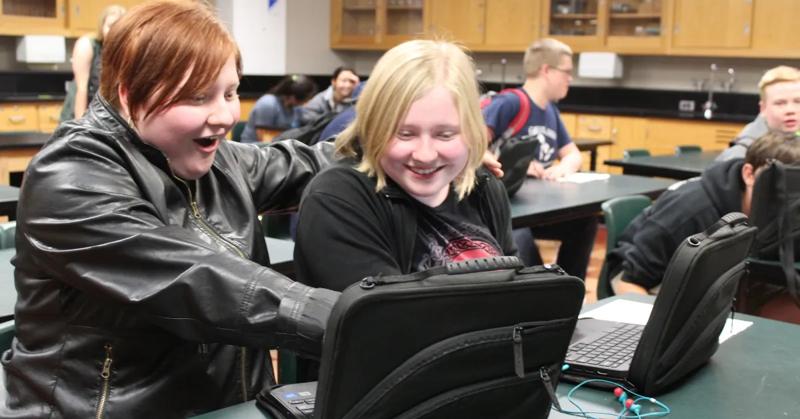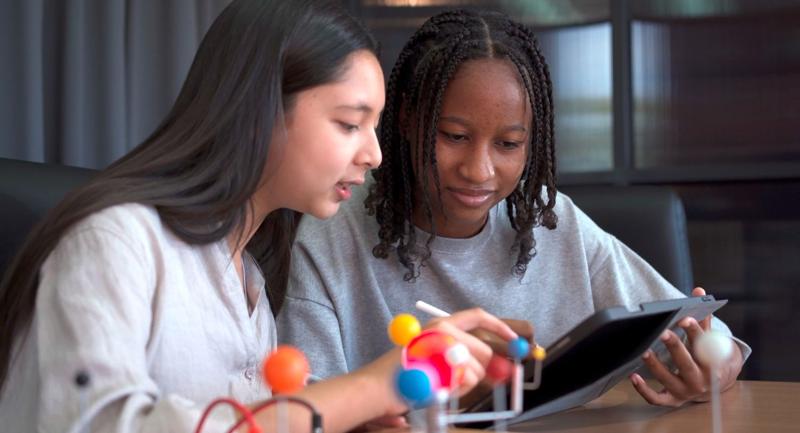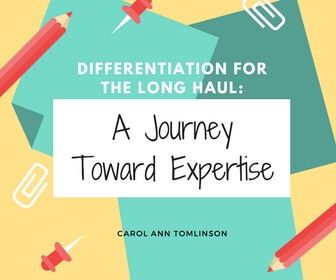“There is no teacher preparation program that could have prepared you for this.”
This was the somber message I gave the first-year teachers I coach at the end of last year. Many of them were struggling with the move to a digital classroom and felt that they were flailing in a vast sea of confusion with the water right at—or over—their heads. They wondered what to do now. All I could do was let them know: It’s not just you. There is no program that could have prepared any of us to teach in a pandemic.
The end of the year also called into question the role of the K-12 educator. Though our profession is much more than homework, many of us were trained with the general perception that our job asks us to provide knowledge and skills practice to our students in engaging ways. As we went digital, many of us saw that it was possible for students to receive knowledge through recorded lessons or online searches. They could practice skills even if we weren’t there.
The pandemic is not the only change that should cause us to reimagine school. This spring, the resurgence of the Black Lives Matter movement was a necessary reminder of what many teachers, particularly BIPOC (Black, Indigenous, People of Color) teachers have been saying for generations: We live in an unjust society that is continually battling the demon of racism. Everyone—especially educators—must be actively antiracist in our schools and classrooms and in our personal lives.
As we reflect on the murders of Ahmaud Arbrery, George Floyd, Breonna Taylor, Elijah McClain, and countless others, many teachers are realizing that we have an opportunity to help students process what is happening and provide support as many youth activists take the stage to create a better future.
We are all reconsidering what the new year school year will bring. From face masks to plastic dividers on desks to socially distant classrooms (if such a thing can exist with kids) to actively working against racism, there is no conception for what schools should look like now. As we return and move forward, here are some aspects of our profession that must evolve:
Validate and uplift students’ identities outside of their “student” identity.
Far too often, standardized testing and overly quantitative-data-driven decisions meant have numbered off kids as statistics instead of whole people. As we were unable to test this spring, there was a shift away from standardized exams. We should use this shift as an opportunity to focus away from the state-testing lens.
We can reconsider how and what we grade our students on. Can we rethink how we provide feedback and support to students? When we penalize students for being late, what are we truly assessing? For example, I would take off a few points for not following certain instructions around essay formatting or turning in assignments when due, because I knew that I had multiple touchpoints with my students where they received that feedback from myself or their peers and I think middle school is a good time to teach organizational and executive functioning skills. However, once we moved into distanced learning, I realized my students had much more on their plate and I had fewer opportunities to give that feedback. So, while I still gave the feedback, I stopped grading assignments on those aspects to focus on what was more important: my students’ critical thinking and engagement with the work.
We can also create projects that allow kids to consider their own identities. Instead of a reading comprehension quiz on Shakespeare’s history, ask them to consider how their identities affect their reading of a story. Let students seek answers to science found in their homes and communities by giving them projects and experiments that use easily accessed materials, such as Citizen Science Projects like “Globe at Night,” where students submit data regarding light pollution in their communities.
Teaching holistically is about giving kids fewer assignments for ingesting knowledge and more opportunities to see themselves in the curriculum.
Treat students as active and engaged members of society.
As much as we love “our kids,” that love can spin into viewing our students as “just kids.” This underestimates our students’ abilities to organize and make change. This summer was a masterclass in student advocacy. Young people organized major marches and shared their experiences with racism in powerful ways that can act as mentor texts and motivation for our own students.
There are numerous online resources about having conversations with students about race and inequity at all ages (work by Liz Kleinrock and PBS are very good). It’s important that we begin these conversations with students now, providing information, context, space to process, and opportunities to turn reactions into real action. Projects and authentic assessments based on getting students to actively use their voices and the skills they gain in our class in real-world situations, such as encouraging students to make a podcast, are key.
Take a deep look at curriculum and practice— and be transparent about growth.
This summer, many of us identified just how narrow our own understanding of U.S. history is and how much our own educational experiences lacked nuance and depth. Concepts like the 1921 Tulsa Race Massacre, Juneteenth, or how racism affects climate change have been woefully overlooked in our society and in education. It’s good to acknowledge that, but just realizing this gap is not enough. What work are we doing to close it?
We need to take a hard look at what we teach, how we teach it, and our own prevailing ideas about education. Books like A People’s History of the United States, Lies My Teacher Told Me, An Indigenous Peoples’ History of the United States, Stamped from the Beginning, and The New Jim Crow, can help us understand not just racial unrest in America, but how the current education system has failed us and our students (many titles around race also have young reader’s editions).
More importantly, we need to normalize sharing this journey with our kids. Be upfront with them about your own biases. I take the “Implicit Bias” test (typically the one around age) online in front of my students each year and share with them times I’ve been biased without realizing it. Share the books that you are reading on your own, so they know that this is a journey that everyone needs to make. In doing so, we can show that being antiracist is a lifelong process that we all must take part in, long after the current moment has faded.





